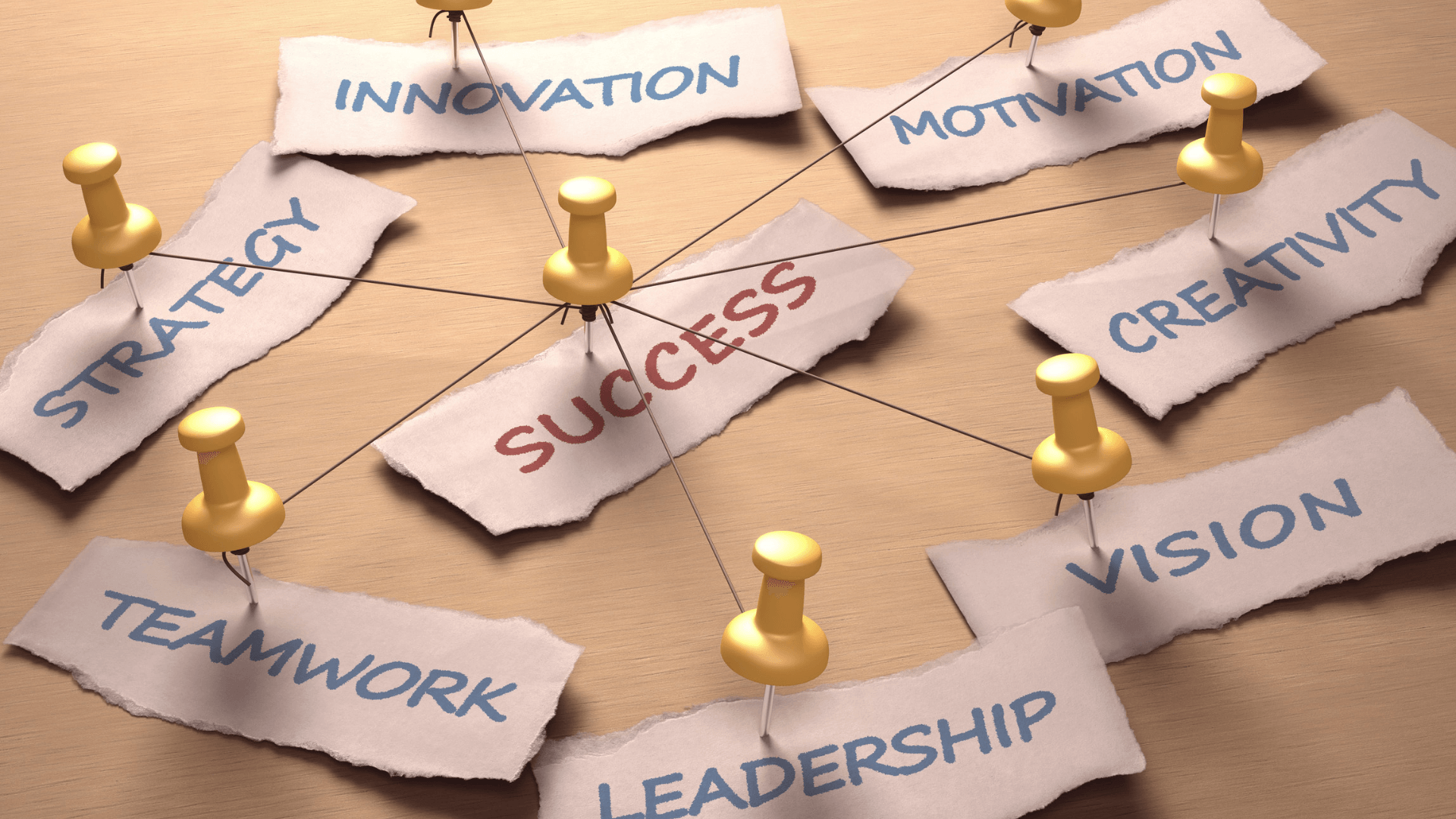Table of Contents
- Employ the Right People
- Look for Candidates with a Strong Work Ethic
- Conduct a Thorough Interview Process
- Consider Soft Skills
- Create a Positive Work Environment
- Encourage Open Communication
- Provide Opportunities for Growth
- Recognise and Reward Good Work
- Promote a Strong Company Culture
- Define Your Company Values
- Lead by Example
- Celebrate Successes Together
As a business owner, one of your main priorities is developing a team of skilled individuals who will work together to fulfil your company’s goals. However, identifying and maintaining top talent can be a tough task. In this blog post, we’ll discuss some tips on how to develop a strong team that will help your business succeed.

Employ the Right People
Your hiring process for employing the right people is essential for developing a strong team that can work together effectively to meet your company’s goals. The individuals you hire should not only have the essential skill set and expertise but also fit well with your company culture. This signifies that they share your company’s values, work ethic, and vision.
To hire the right people, it’s crucial to define your company culture and communicate it effectively to potential employees. You can achieve this by producing a company culture statement that explains your company’s beliefs, work atmosphere, and expectations. This statement should be included in your job advertisements, and you can also discuss it during the interview process.
When assessing a potential employee’s fit with your corporate culture, you might ask questions that relate to your company’s values and work environment. For example, you might ask about their work style, what drives them, and how they handle various challenges.
You can also ask for specific examples of how they’ve demonstrated teamwork, their ability to adapt, or their communication skills in previous roles.
It’s also essential to evaluate a potential employee’s personality, attitude, and behaviour during the interview process. You can use behavioural assessments or personality tests to gain some insight into how a candidate may engage with other people on your team and fit into your company culture. To help insure you’re hiring the right people, here are some tips to consider:
Look for Candidates with a Strong Work Ethic
Asking questions about an applicant’s work experience, past achievements, and their approach to work might help you spot applicants with a strong work ethic. You could ask about their work style, their sources of motivation, and approach to challenging situations
Applicants who are passionate about their work and have a track record of hard work are excellent indicators of a strong work ethic. Ask the applicant about specific examples during the interview where they went above and beyond to solve difficulties, took on extra duties, or worked over the call of duty to meet deadlines. Indicators of a good work ethic can also be seen in the applicant’s CV, such as consistency in their employment history, promotions, and positive references from previous employers.
Hiring employees with a strong work ethic is essential for building a strong team. The success of the company as a whole can be attributed to these workers’ ability to inspire and motivate others, as well as being a positive example. By asking the right questions and looking for particular markers, you can identify applicants with a strong work ethic who will be a benefit to your team.
Conduct a Thorough Interview Process
To make sure you select the best individuals for your team, you must conduct a thorough interview process. You can evaluate an applicant’s qualifications, experience, character, and compatibility with your business culture through an interview process. By asking the right questions and conducting in-depth interviews, you can get a sense of how an applicant would approach challenges and fit into your team.
One way to assess an applicant’s problem-solving ability is to ask them to give examples of how they have overcome challenges in the past. By doing this, you can learn more about how they tackle problems and whether or not it aligns the objectives and values of your company. If you want to know if their style of problem-solving would work well with your team, you can also ask them how they would handle similar situations in your business.
Throughout the interview process, it’s crucial to evaluate a potential candidate’s compatibility with your team. To do this, you must consider a person’s personality, communication style, and interpersonal abilities in addition to their knowledge and expertise. You can learn about an applicant’s personality and communication style by asking open-ended questions that require the potential candidates to elaborate on their responses.
Additionally, you can use role-playing exercises or hypothetical scenarios to assess how a candidate would handle situations that they might face in your company. This might give you an idea of their capacity for making decisions and how they would interact with the other members of your team.
Consider Soft Skills
It’s important to consider both technical talents and soft skills into account when hiring for a position. While technical skills are required for an applicant to carry out the job’s duties, soft skills are just as important because they influence the individual’s ability to interact well with others and adapt to changing circumstances.
In order to create a strong team, soft skills such as communication, cooperation, and adaptability are crucial. Applicants who possess these qualities are more likely to connect with your team and make a positive impact on your business.
Any team’s ability to work effectively depends on its ability to communicate clearly. Choose applicants who can articulate their thoughts effectively, pay attention to what others have to say, and offer constructive criticism. Individuals with strong communication skills can reduce misunderstandings and promote a productive workplace.
Teamwork is another important soft skill to consider when hiring. Look for applicants who can collaborate with others, contribute to group tasks, and are eager to assist others when required. Building a cohesive team that can accomplish the objectives of your business requires employees who can work well with others .
Another essential soft skill for every employee is adaptability. Applicants that can adjust to changes in the workplace, deal with unforeseen circumstances, and are eager to learn new abilities should be sought out. Your business can maintain its competitiveness and adapt to shifting market conditions with the support of flexible employees.
Create a Positive Work Environment
Once you’ve hired the right people, it’s essential to create a positive work environment that will enable your team to succeed. A positive work environment is essential for promoting productivity, employee job satisfaction, and overall business success. The following advice could help you to develop a positive workplace:
Encourage open communication: Encourage team members to communicate openly. Make sure that everyone feels free to share their opinions. As a result, the team will become more trustworthy and the workplace will become more collaborative.
Provide opportunities for growth: Give your team members chances to develop their knowledge and abilities. Training sessions, conferences, or working on difficult projects might all fall under this category. In addition to assisting your employees in developing their abilities, investing in their growth shows your concern for their professional development.
In addition to assisting your employees in developing their abilities, investing in their growth shows your concern for their professional development. Team members that perform well should be commended and given rewards. Promotions, rewards, or even modest actions like a shout out during a team meeting can fall under this category. Recognizing and rewarding excellence will inspire your team and create a productive workplace.
Encourage a sense of community: Encourage a sense of belonging among your team members. Promote social gatherings and team-building exercises to assist teammates get to know one another better, and encourage employee engagement. Team members can feel more invested in their work and more connected to the company when there is a sense of community.
Lead by example: As a leader, it’s important to model the behaviour you want to see in your team. This includes being on time, being prepared, and maintaining a positive attitude. When your team sees you modelling these behaviours, they’re more likely to follow suit.
Encourage Open Communication
Promoting open communication among team members is essential for establishing a productive workplace. When team members feel at ease expressing their opinions and ideas, they are more likely to share information, communicate successfully, and work towards accomplishing common objectives. This helps promote the growth of trust among team members and create a more cohesive and productive workplace.
Here are a few strategies for promoting open communication among team members:
Establish a safe space for communication: Create a safe space for communication where staff members can freely share their opinions and ideas without fear of criticism or reprisal. This can be achieved through establishing communication guidelines and developing a culture of respect and open mindedness.
Listen actively: Active listening is an essential element of good communication, encourage team members to engage in active listening, to ask questions, and to explain any misunderstandings.
Provide feedback: Offer regular, constructive feedback to staff members. This can aid in the identification of areas for improvement and support ongoing growth and development.
Encourage collaboration: Motivate team members to collaborate on projects and to work together to achieve common objectives. This can contribute to the development of a sense of community and a more collaborative work environment.
Use technology: Use technology such as video conferencing, instant messaging, and project management tools to improve team communication and collaboration. This can be particularly advantageous for remote teams or teams working across alternate time zones.
Provide Opportunities for Growth
Creating opportunities for your team members to grow and develop their skills is an important aspect of building a positive work environment. By investing in the growth of your staff, you not only help them improve their abilities, but you also demonstrate that you care about their professional development and are dedicated to their long-term success.
Below are some strategies to provide opportunities for the growth and development of your team members’ skills:
Provide training sessions: Offer training sessions on relevant themes linked to the job of your team. Training may include technical training, leadership training, or training in soft skills. By investing in the training of your employees, you can help them enhance their abilities and gain confidence.
Attend conferences: Encourage team members to attend conferences and industry events in order to stay on top of the most recent trends and best practices in their sector. This can provide team members with excellent networking opportunities and introduce them to fresh ideas and viewpoints.
Assign challenging projects: Provide challenging projects that stretch team members’ talents and require them to acquire new knowledge. This can help them gain confidence and new abilities that will be useful in their current and future roles.
Offer mentorship opportunities: Provide mentoring to team members to assist them in navigating their career path and developing their talents. This can be accomplished through official mentorship programs or informal mentorship with senior members of the team.
Provide feedback: Be sure to provide team members with consistent feedback on their performance and areas for improvement. This can assist them in identifying their strengths and weaknesses and help them create a growth and development plan.
Recognise and Reward Good Work
An integral part of creating a positive work atmosphere is recognising and thanking team members for their hard work. When team members perceive that their contributions are acknowledged and appreciated, they are more driven, engaged, and committed to their work. This can help create a positive work atmosphere and boost morale and overall productivity.
Below are a few ways to acknowledge and reward team members for their excellent performance:
Promotions: Consider promoting team members who display outstanding performance and leadership on a consistent basis. This can give a clear career path for team members and demonstrate that diligence and perseverance are rewarded.
Bonuses: Consider offering bonuses or other financial incentives to team members who exceed expectations or meet particular targets. This can assist in motivating team members and encourage healthy competition.
Shout outs: Consider giving shout outs during team meetings or in company-wide communications in order to honour team members who have achieved exceptional work. This can help with the development of a healthy work environment and promote a culture of recognition and appreciation.
This can help with the development of a healthy work environment and promote a culture of recognition and appreciation.
Awards: Consider giving rewards or certificates of success to team members who demonstrate an outstanding performance or make substantial contributions to the company. This can enhance the team members’ sense of pride and accomplishment .
Professional development opportunities: Consider offering top performers with opportunities for professional development, such as attending conferences and training sessions. This can motivate team members and create opportunities for their growth and development.
Promote a Strong Company Culture
In order to establish a successful team, it is vital to build a strong business culture. A strong company culture consists of the shared values, beliefs, attitudes, and behaviours that shape how work is performed within an organisation. It influences how employees connect with one another, the level of commitment they have to the organisation, and the company’s overall success.
Listed below are several approaches to develop a strong company culture:
Define your company values: Establish your company’s values and communicate them to your workforce in a straightforward manner. Your company values should align with its mission and vision and serve as a guide for its internal operations.
Lead by example: As a leader, it is essential to demonstrate the behaviour you expect from your team. This involves demonstrating your commitment to the company’s values, being clear in your communications, and expressing gratitude for your employees.
Encourage collaboration: Motivate your team members to collaborate and work together. This can be achieved through team-building exercises, cross-functional projects, and open communication.
Embrace diversity and inclusion: Your organisation should embrace diversity and inclusion. This involves creating an environment in which every team member feels appreciated, respected, and included.
Acknowledge and reward good work: Recognise and reward team members who exhibit remarkable performance or contribute to the overall success of the company. This can assist in motivating and engaging your staff and promote a positive work atmosphere.
Define Your Company Values
Setting clear company values and making sure your team understands them is an important part of building a strong team and making the workplace a good place to be. Company values are the guiding principles that make up an organisation’s culture, mission, and vision. They affect how employees treat each other, how committed they are to the organisation, and how well the company does as a whole. Here are some ways to define your company’s values and make sure your team understands them:
Define your values: Take the time to figure out what your company’s values are and write them down. These should be the main ideas that shape your organisation’s culture, mission, and vision.
Share your values: Tell your team clearly what the company values are. This can be done with the help of employee handbooks, training sessions, and regular communication methods.
Lead by example: As a leader, it’s important to model the behaviour you want to see in your team. This means showing your commitment to your company’s values, being clear in your communication with your employees, and being appreciative of your team.
Incorporate values to the hiring process and performance reviews: Add your company’s values into the hiring process and performance reviews. This makes sure that your team members know how important your company values are and that they are in line with the mission and vision of your organisation.
Revisit your values regularly: Review your company’s values often to make sure they remain relevant to your business. This can be done with employee surveys, team meetings, and feedback sessions.
Lead by Example
As a leader, it’s essential to set a good example if you want to build a strong team and make the workplace a positive place to work. When individuals on a team see their leader acting the way they want others to act, it builds a culture of accountability, commitment, and trust.
Here are some ways to lead by example:
Demonstrate passion for your work: If you want your team members to be passionate about their job, you need to demonstrate this behaviour too. Show your team members why you’re passionate about what you do by working with an abundance of energy and enthusiasm.
Communicate clearly and transparently: It’s essential that you communicate clearly and transparently if you want to build trust and create a positive work environment. As a leader, you should talk to your team members in an open and honest way and model the behaviour you want to see in others.
Hold yourself accountable: When you make a mistake, you should take responsibility for it and hold yourself accountable. This shows your team members that you’re willing to admit when you’re wrong, and it establishes an environment of accountability and responsibility.
Respect your team members: Treat them with respect and dignity, and model the same behaviour that you want to see in others. This means actively listening, valuing different points of view, and giving constructive feedback.
Accept change: Embrace change and display a positive attitude towards it. When your team sees you adapting to new situations and welcoming change, they are more likely to do the same.
Celebrate Successes Together
The final step in creating a healthy work environment and maintaining a strong team culture is to celebrate successes as a team. Team members are more likely to be motivated, engaged, and committed to their work when they feel valued and appreciated. Celebrating success with the team also creates a sense of belonging and a common goal.
Here are some ideas to celebrate successes together as a team:
Acknowledge and recognise achievements: Take the time to acknowledge and appreciate the accomplishments of both the team as a whole and the individual team members. This can be achieved through group discussions, shout-outs, or public recognition.
Celebrate milestones: Celebrate milestones, such as reaching a sales goal, launching new products, or finishing a big project milestone. This can be achieved through team outings, team lunches, or other unique events.
Provide incentives and rewards: Offer incentives and rewards, such as bonuses, gift cards, or time off, to celebrate achievements and express gratitude for the team members’ commitment and hard work.
Share success stories: To encourage and energise the team, share success stories. . This can be done through internal communications, business newsletters, or team meetings
Encourage team bonding: Promote team building by organising team-building exercises, outings with the group, or social events. This promotes a sense of belonging and a common goal among team members.
In conclusion, building a strong team requires patience, hard work, and commitment. By hiring the right people, developing a positive work atmosphere, and by nurturing a strong company culture, you can build the right team to help your business thrive.


















